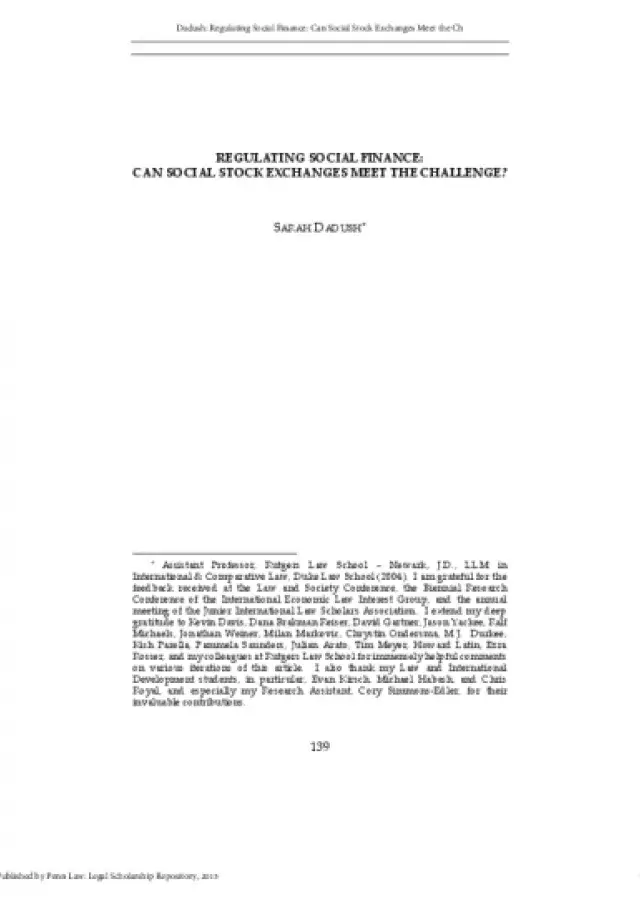Regulating social finance: can social stock exchanges meet the challenge
5 September 2017
Social finance is fast becoming a mainstream source of funding for goods and services that target poor people across the globe. With social finance, impact investors put their capital behind enterprises that profitably cater to underserved populations by expanding access to critical goods and services, such as healthcare, affordable housing, credit, and quality employment. Social finance is hybrid in that it is driven by both social and commercial imperatives: Impact investors and social businesses want to generate financial returns alongside a positive social impact. While hybridity creates pathways for changing the role of business in society, it also creates openings for explosive conflicts of interest that can harm the
very people whose lives are supposed to be improved. This article argues that social-financial hybridity presents a pressing regulatory challenge that must be addressed. It evaluates the potential for three newly established Social Stock Exchanges (SSEs)-platforms designed to connect investors with social businesses in need of capital to bridge this regulatory gap. Treating SSEs as transnational rulemaing laboratories for social finance, this study reveals how current regulatory frameworks fall short of filling the hybridity cracks through which beneficiaries can slip and recommends measures for correcting this deficit.
Responsibility
External


